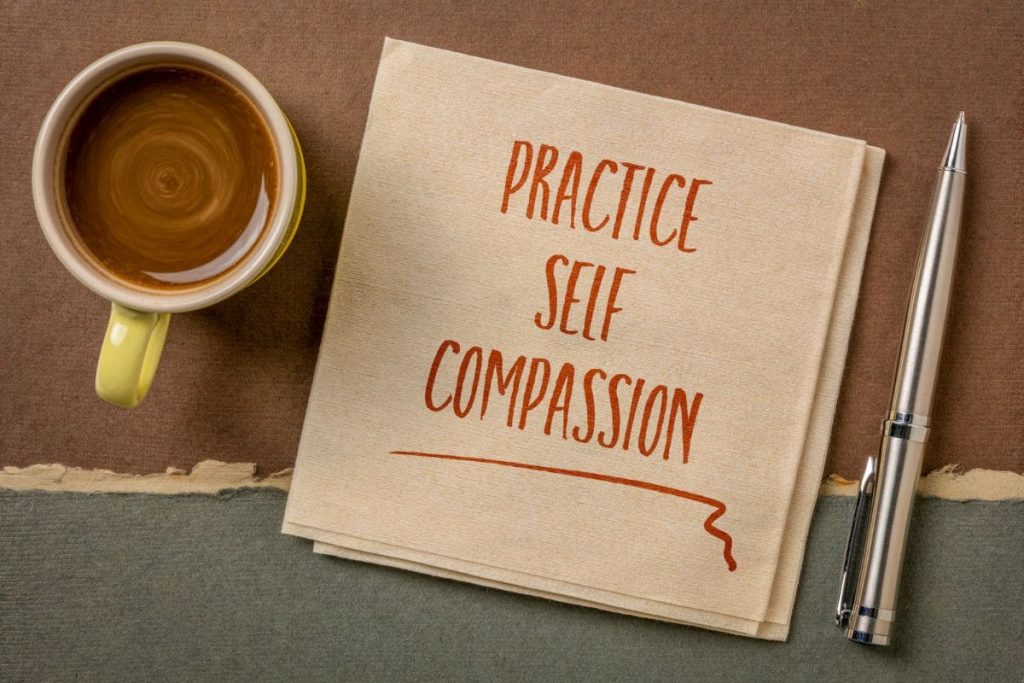Hey there, introverted imposters! Are you ready to kick imposter syndrome to the curb and unleash your full potential? Great, because that’s exactly what we’re here to do.
As an introvert, you might have a special relationship with imposter syndrome – that nagging feeling that you’re not good enough, that you’re seeming like a fraud somewhere, that you’ll be exposed any moment. But let’s be real, imposter syndrome is just a big bully that likes to mess with our heads and steal our joy. And we’re not going to let it.
In this guide, we’ll get down and dirty with imposter syndrome, bust some myths, and give you the tools to unmask the often-experienced imposter syndrome from within. We’ll show you how to recognize the signs, deal with the doubts, and boost your confidence, all with a playful and supportive approach.
So buckle up, my introverted imposters, and let’s dive into the wonderful world of self-discovery, personal and professional growth, and, most importantly, fun. Let’s kick some imposter butt!
Understanding Imposter Syndrome

Are you ever in a situation where you’re asked to introduce yourself, and you’re struck with a sudden fear that everyone will find out that you’re actually a fraud?
Or maybe you’re in a meeting and you’re convinced that you’re the least qualified person in the room? We’ve all been there. That, my friends, is imposter syndrome.
But what is imposter syndrome, you ask? Well, it’s that sneaky little voice in the back of your head that whispers, “You don’t belong here. You’re not good enough. You’re a fraud.“
And let’s be real, that voice is a jerk. It’s like that annoying classmate who always sits next to you and eats a tuna sandwich with extra onions.
Recognize The Imposter Syndrome In Introverts

One way to recognize imposter syndrome is to pay attention to the negative thoughts and feelings that arise when you’re feeling doubt or fear.
Are you telling yourself that you’re not good enough, that you don’t belong, or that you’ll never be as successful as others? These are all signs that imposter syndrome may be at play.
Another way to recognize imposter syndrome is to notice how you react to compliments or praise.
Do you brush it off or downplay your accomplishments? Do you feel like you don’t deserve the recognition? These are also signs that imposter syndrome may be present your entire life.
So, introverts, let’s recognize when imposter syndrome is creeping in and take action to combat it. We are talented, skilled, and deserving high expectations of success, and we shouldn’t let doubt and the fear of failure hold us back.
Overcoming Imposter Syndrome In Introverts

As an introvert, it’s easy to fall into the trap of imposter syndrome, but it’s important to recognize it and take action to overcome it.
In this blog post part, we’ll explore practical strategies to help introverts overcome imposter syndrome and achieve their goals.
Practical Strategies To Overcome Imposter Syndrome
- Recognize and acknowledge your accomplishments: It’s easy to focus on the things we haven’t done or the areas where we feel we fall short, but it’s important to recognize and celebrate our accomplishments. Make a list of your achievements, no matter how small, and remind yourself of them when you’re feeling doubt or fear.
- Reframe your thinking: Instead of focusing on your perceived weaknesses or failures, reframe your thinking to focus on your strengths and successes. For example, instead of thinking, “I don’t know what I’m doing,” think, “I have the skills and knowledge to figure this out.”
- Talk to someone: Sometimes, just talking to someone can help us overcome imposter syndrome. Reach out to a friend, mentor, or therapist and share your thoughts and feelings. You may find that they can offer a new perspective or help you see things in a different way.
- Practice self-care: Taking care of ourselves is crucial for overcoming imposter syndrome. Make time for activities that bring you joy and relaxation, such as reading, hiking, or spending time with loved ones. Remember, you deserve to take care of yourself.
- Take action: Finally, the best way to overcome imposter syndrome is to take action. Don’t let fear and doubt hold you back from pursuing your goals and dreams. Take small steps, set achievable goals, and celebrate your progress along the way.
Remember, as an introvert, you have unique strengths and talents that can help you succeed. Don’t let imposter syndrome hold you back. With these practical strategies, you can overcome imposter syndrome and achieve your goals.
Putting It Into Practice: Exercises And Activities

You now have some practical strategies to help you overcome imposter syndrome, so let’s put them into action! Get ready to build your confidence and take action towards your goals with these exercises and activities.
By implementing these exercises in personal life, you can silence your inner critic and overcome imposter syndrome. These activities will help you recognize your strengths, acknowledge your accomplishments, and step outside of your comfort zone to achieve success.
So, introverts unite! You are capable, deserving, and have what it takes to overcome imposter syndrome. Let’s put these practical strategies into practice and show the world what we’re made of!
Practice Visualization

Visualization is a technique where you close your eyes and picture yourself succeeding at a task or goal.
It’s like creating a mental movie where you’re the star, feeling confident, capable, and successful! This exercise can help you overcome imposter syndrome by rewiring your brain to focus on your strengths and successes.
So, grab some popcorn (or your favorite snack) and get ready to visualize your way to success!
Try A New Hobby

Why introverts should take up new hobbies? Trying something new can help you build confidence and self-esteem.
Pick one of the hobbies for introverts or an activity that you’ve always wanted to try, whether it’s painting, rock climbing, or learning a new language.
Keep always in mind, the goal isn’t perfection – it’s a learning opportunity to try something new and challenge yourself.
Celebrate Your Accomplishments

This is a vital step in overcoming imposter syndrome as an introvert. It’s easy to downplay our successes or attribute them to luck or external factors, but that only reinforces feelings of inadequacy and self-doubt.
To combat imposter syndrome, take time to acknowledge and celebrate your achievements, no matter how small they may seem.
This can be as simple as giving yourself a mental high-five, treating yourself to your favorite snack, or sharing your success with a supportive close friend or family member.
Celebrating your accomplishments can help you recognize your strengths and build your self awareness and confidence, which is essential for overcoming imposter syndrome. So, go ahead, give yourself a pat on the back, and celebrate all that you’ve achieved! You deserve it.
Practice Self-Compassion

It’s common to beat ourselves up over perceived mistakes or shortcomings, but this negative self-talk only reinforces feelings of inadequacy and self-doubt. To combat imposter syndrome, practice self-compassion by treating yourself with kindness, understanding, and forgiveness.
When you notice negative self-talk creeping in, take a moment to pause and reframe your thoughts. Instead of criticizing yourself, offer words of encouragement and support. Treat yourself like you would treat a good friend – with compassion and understanding.
By seeking support and practicing self-compassion, you can cultivate a more positive and supportive inner dialogue, which can help you overcome imposter syndrome and build your self confidence as an introvert. So, be kind to yourself, embrace your unique strengths and quirks, and know that you are deserving of success.
Take A Small Step

It’s easy to get caught up in the idea that we need to have it all figured out or make huge strides towards our life goals all at once. But this all-or-nothing mentality can actually hold us back from making progress and reinforcing imposter syndrome.
Instead, break your goals down into smaller, more manageable steps. This could be something as simple as sending an email or making a phone call, practicing a skill for 10 minutes a day, or researching opportunities in your field. By taking small steps towards your goals, you’ll build momentum, confidence, and a sense of accomplishment.
Progress doesn’t have to be perfect or happen all at once. Every small step counts and adds up over time. By taking action and moving forward, you’ll build your confidence and overcome your own imposter syndrome, one step at a time. So, take that small step today, and watch as it leads to big things!
Final Thoughts On This Topic

Imposter syndrome can be a challenging obstacle to overcome, especially for introverts. However, by recognizing its symptoms and taking practical steps to overcome it, we can build our self-worth and confidence and achieve our goals.
It’s important to remember that imposter syndrome is common, and many successful people have experienced it at some point in their lives. As introverts, we may be more prone to experience imposter syndrome, due to our tendency to be self-critical and reflective.
However, by recognizing our strengths and accomplishments, reframing our thinking, and taking action toward our goals, we can overcome imposter syndrome and achieve our dreams.
Remember, overcoming imposter syndrome is a journey, not a destination. Be kind and compassionate to yourself, celebrate your successes, and take small steps towards your goals. With time and practice, you can overcome imposter syndrome and achieve the success you deserve.

